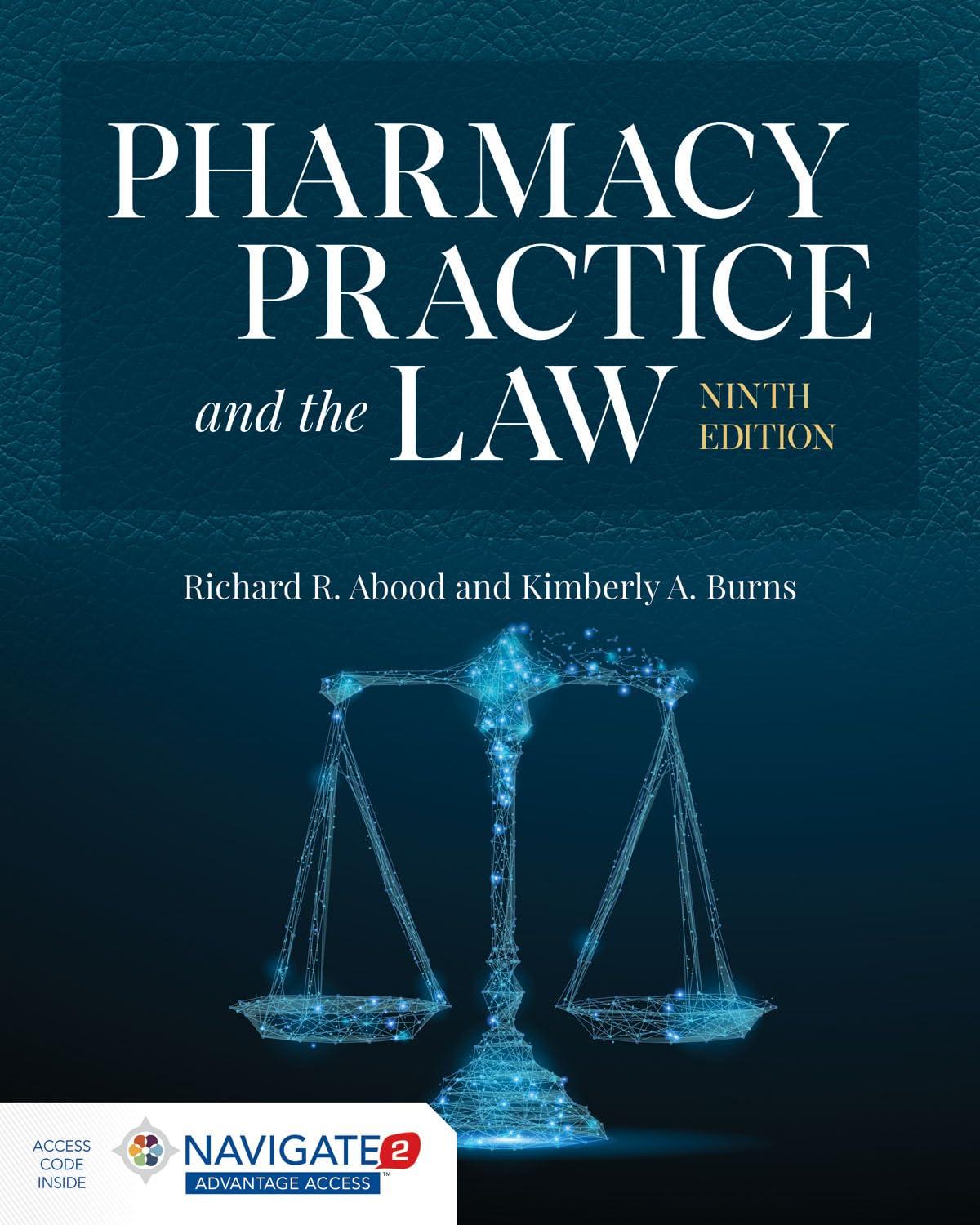Mary Lee is a terminally ill patient in chronic, severe pain. Her physician has elected to aggressively
Question:
Mary Lee is a terminally ill patient in chronic, severe pain. Her physician has elected to aggressively treat her pain with oxycodone and other schedule II drugs for breakthrough pain. Mary gets her prescriptions filled at LessPay Pharmacy. Tom Tam, a pharmacist at LessPay, knows Mary’s condition but became concerned after he noticed that every month her dosages kept increasing considerably to the point that her prescriptions were for a few hundred tablets at a time.
Tom became convinced that Mary was addicted to the drug and concerned that diversion was occurring because of the large number of tablets. Tom called the physician with his concerns. The physician reacted angrily and told Tom that whether Mary is addicted or not is irrelevant and none of his business and that her treatment is appropriate. To suggest diversion, the physician added, was absurd, and he abruptly hung up on Tom. When Mary came to the pharmacy a few days later with new prescriptions for even greater quantities of opioids, Tom told her that he could not fill the prescriptions any longer.
Are Tom’s concerns and actions justified under the corresponding responsibility doctrine? In other words, should addiction and diversion be a concern in this case? What would you do if you were Tom and had Mary for a patient? Would it matter in your actions if Mary did not have a terminal illness but did have chronic, severe pain?
Step by Step Answer:

Pharmacy Practice And The Law
ISBN: 9781284154979
9th Edition
Authors: Richard R. Abood, Kimberly A. Burns





